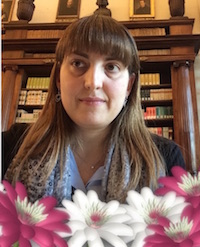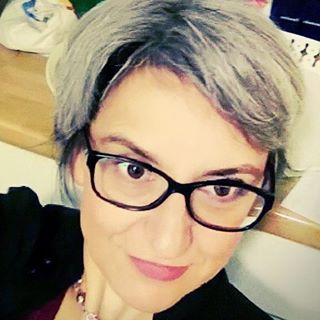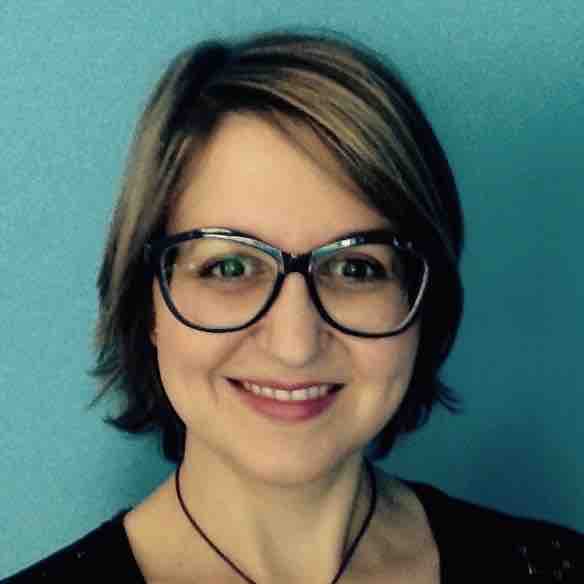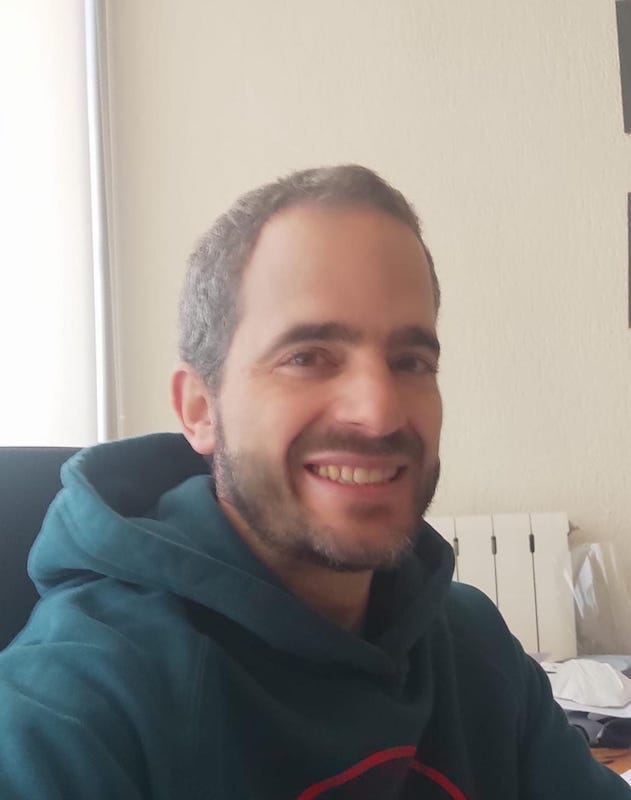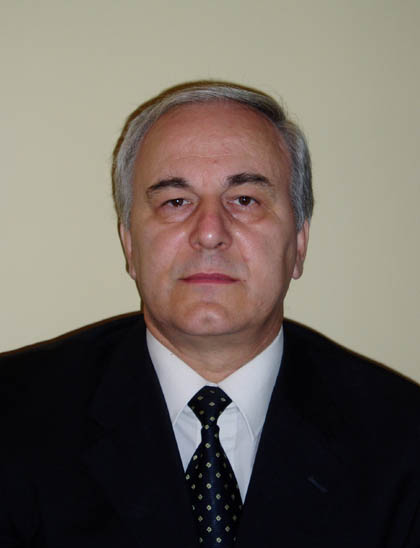Studying at the University of Verona
Here you can find information on the organisational aspects of the Programme, lecture timetables, learning activities and useful contact details for your time at the University, from enrolment to graduation.
Academic calendar
The academic calendar shows the deadlines and scheduled events that are relevant to students, teaching and technical-administrative staff of the University. Public holidays and University closures are also indicated. The academic year normally begins on 1 October each year and ends on 30 September of the following year.
Course calendar
The Academic Calendar sets out the degree programme lecture and exam timetables, as well as the relevant university closure dates..
| Period | From | To |
|---|---|---|
| Semester 1 | Oct 2, 2017 | Jan 20, 2018 |
| FULL YEAR | Oct 2, 2017 | Jun 9, 2018 |
| Semester 2 | Feb 26, 2018 | Jun 9, 2018 |
| Session | From | To |
|---|---|---|
| Winter session | Jan 22, 2018 | Feb 24, 2018 |
| Summer session | Jun 11, 2018 | Jul 28, 2018 |
| Autumn session | Aug 27, 2018 | Sep 22, 2018 |
| Session | From | To |
|---|---|---|
| LAUREE LINGUE - sessione autunnale a.a. 2016/2017 | Dec 18, 2017 | Dec 21, 2017 |
| LAUREE LINGUE - sessione invernale a.a. 2016/2017 | Mar 23, 2018 | Mar 29, 2018 |
| LAUREE LINGUE - sessione estiva | Jul 16, 2018 | Jul 21, 2018 |
| LAUREE LINGUE - sessione autunnale | Nov 12, 2018 | Nov 17, 2018 |
| LAUREE LINGUE - sessione invernale | Apr 12, 2019 | Apr 18, 2019 |
| Period | From | To |
|---|---|---|
| All Saints Day | Nov 1, 2017 | Nov 1, 2017 |
| Immaculate Conception | Dec 8, 2017 | Dec 8, 2017 |
| Christmas break | Dec 22, 2017 | Jan 7, 2018 |
| Easter break | Mar 30, 2018 | Apr 3, 2018 |
| Liberation Day | Apr 25, 2018 | Apr 25, 2018 |
| Labour Day | May 1, 2018 | May 1, 2018 |
| Patron Saint Day | May 21, 2018 | May 21, 2018 |
| Republic Day | Jun 2, 2018 | Jun 2, 2018 |
| Summer break | Aug 13, 2018 | Aug 18, 2018 |
Exam calendar
Exam dates and rounds are managed by the relevant Foreign Languages and Literatures Teaching and Student Services Unit.
To view all the exam sessions available, please use the Exam dashboard on ESSE3.
If you forgot your login details or have problems logging in, please contact the relevant IT HelpDesk, or check the login details recovery web page.
Should you have any doubts or questions, please check the Enrollment FAQs
Academic staff
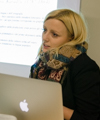
Bradas Marija
 marija.bradas@univr.it
marija.bradas@univr.it
 paolamaria.caleffi@univr.it
paolamaria.caleffi@univr.it
 cecilia.cantalupi@univr.it
cecilia.cantalupi@univr.it
 raffaele.cutolo@univr.it
raffaele.cutolo@univr.it
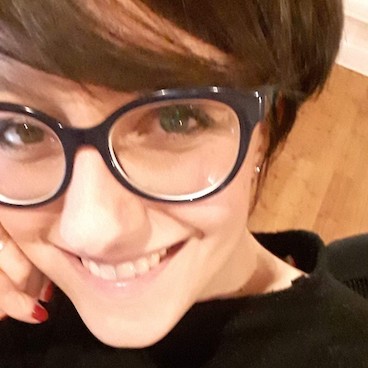
Maiolini Elena Valentina
 elena.maiolini@univr.it
elena.maiolini@univr.it
 stella.merlin@univr.it
stella.merlin@univr.it
 sara.paolini@univr.it
sara.paolini@univr.it
 alberto.scandola@univr.it
alberto.scandola@univr.it
 silvia.zollo@univr.it
silvia.zollo@univr.it
Study Plan
The Study Plan includes all modules, teaching and learning activities that each student will need to undertake during their time at the University.
Please select your Study Plan based on your enrollment year.
1° Year
| Modules | Credits | TAF | SSD |
|---|
1st foreign language2nd foreign language1st foreign literature2nd foreign literatureOne course to be chosen among the following2° Year activated in the A.Y. 2018/2019
| Modules | Credits | TAF | SSD |
|---|
1st foreign literature2nd foreign literature1st foreign language2nd foreign languageOne course to be chosen among the following3° Year activated in the A.Y. 2019/2020
| Modules | Credits | TAF | SSD |
|---|
1st foreign literature2nd foreign literature1st foreign language:2nd foreign languageOne course to be chosen among the followingOne course to be chosen among the following| Modules | Credits | TAF | SSD |
|---|
1st foreign language2nd foreign language1st foreign literature2nd foreign literatureOne course to be chosen among the following| Modules | Credits | TAF | SSD |
|---|
1st foreign literature2nd foreign literature1st foreign language2nd foreign languageOne course to be chosen among the following| Modules | Credits | TAF | SSD |
|---|
1st foreign literature2nd foreign literature1st foreign language:2nd foreign languageOne course to be chosen among the followingOne course to be chosen among the following| Modules | Credits | TAF | SSD |
|---|
Legend | Type of training activity (TTA)
TAF (Type of Educational Activity) All courses and activities are classified into different types of educational activities, indicated by a letter.
General Linguistics (2018/2019)
Teaching code
4S00879
Teacher
Coordinator
Credits
9
Language
Italian
Scientific Disciplinary Sector (SSD)
L-LIN/01 - HISTORICAL AND GENERAL LINGUISTICS
Period
I semestre dal Oct 1, 2018 al Jan 12, 2019.
Learning outcomes
At the end of the course the student will know the basic theoretical knowledge of linguistics, the different levels of linguistic analysis (phonetics and phonology, morphology, syntax and semantics) and the technical terminology. Furthermore, he will be able to describe and recognise the linguistic phenomena occurring in the different levels of analysis, especially from a synchronic point of view.
Program
The course aims at exploring some fundamental concepts of theoretical linguistics, such as, for example, the notion of language on the one hand as a general human faculty and, on the other hand, as a specific socio-historical system in its multiple aspects (functions, levels, etc.).
The goal is to provide the basic theoretical knowledge and the tools for analysing the different linguistic levels, especially phonetics and phonology, morphology, syntax and semantics. Particular attention will be given to the metalinguistic dimension: the aim is to acquire the technical terminology that can be used also in the study of other linguistic disciplines. Emphasis will be on the synchronic perspective, understood as the study of the organization of a language state, that is, its functioning as a system. Finally, a key objective will be the ability to carry out exercises aimed at consolidating (in itinere) and checking (during the final exam) the acquired knowledge.
PREREQUISITES
None.
MAIN TOPICS
1. introduction to linguistics as a scientific discipline;
2. language, semiotics and communication;
3. levels of linguistic analysis.
PROGRAM
The course will cover the following topics:
1. Preliminary notions: Definition of linguistics and natural languages. Semiotic systems, communication.
2. Phonetics and Phonology: Vocal apparatus and classification of sounds. Concept of phoneme. Rules of Trubeckoj. Supra-segmental features. Introduction to phonetic change and the concept of phonetic law.
3. Morphology: The notion of morpheme. Word classes. Derivation, Composition, Inflexion. Allomorphy and suppletion. Other relevant morphological processes.
4. Syntax: Valency. Phrase and criteria for phrase identification. Classification of clauses (principal and subordinate). The concept of subject.
5. Semantic and pragmatics: introduction to the semantic change and to the linguistic acts.
6. Vocabulary and Lexicology: Vocabulary and dictionary, interference phenomena.
7. Classification of languages (genealogical, typological, etc.), areal phenomena. Languages, dialects, language varieties. Bilingualism and diglossia. Pidgin and creole.
TEACHING
1. Lectures dedicated to the topics of the course.
2. Exercises during class with the support of the teacher, and on the online platform to apply the acquired skills.
3. Non-attending students must study the handbooks listed below and the materials available on the e-Learning platform. The teacher will provide support for individual study (students are recommended to contact the teacher via email).
All students are encouraged to contact the teacher during office hours as indicated on the teacher’s web page and through announcements.
| Author | Title | Publishing house | Year | ISBN | Notes |
|---|---|---|---|---|---|
| Docente del corso | Appunti e materiali forniti sulla piattaforma e-Learning | ||||
| Graffi, Giorgio; Scalise, Sergio | Le lingue e il linguaggio. Introduzione alla linguistica (Edizione 3) | Il Mulino, Bologna | 2013 | 9788815241795 | Capitoli I, II, III, IV, V, VI, VII, VIII |
Examination Methods
During the exam, the knowledge of the basic theoretical concepts of linguistics will be evaluated, as well as that of the different levels of linguistic analysis (phonetics and phonology, morphology, syntax and semantics) and the technical terminology. Furthermore, the ability to describe and recognise the linguistic phenomena occurring in the different levels of analysis, especially from a synchronic point of view, will be verified.
For all students, both attending and non-attending, the final exam is divided into two parts, consisting in a written test and an oral exam.
1. The written test consists of a number of questions that may be both closed-ended and open-ended. Some questions will address the concepts learned during the course and the identification and description of the linguistic phenomena (phonetic and phonological, morphological, syntactical, semantical, and interference), others will require the solution of exercises through the application of the rules studied.
2. The oral exam consists in a short final interview about all topics of the course.
N.B.: A positive result of the written test is required to access the oral exam. A positive written test is not sufficient to pass the exam.
The written exam precedes the oral exam, the latter follows directly the correction of the written test on the same day or in subsequent days, depending on the number of participants.
RATING
The evaluation is expressed in thirtieths, based on the knowledge, effectiveness, pertinence and readiness of answers.
For ERASMUS students, the teacher is available to explain the content and methods of the exam.
Type D and Type F activities
To discover all the teaching activities accredited by the foreign teaching college click here
Career prospects
Module/Programme news
News for students
There you will find information, resources and services useful during your time at the University (Student’s exam record, your study plan on ESSE3, Distance Learning courses, university email account, office forms, administrative procedures, etc.). You can log into MyUnivr with your GIA login details: only in this way will you be able to receive notification of all the notices from your teachers and your secretariat via email and also via the Univr app.
Student login and resources
Gestione carriere
Assegnazione tutore
Attività accreditate D/F
Calendario didattico dettagliato
Cambio lingua curriculare
Competenze informatiche
Competenze linguistiche (prima e seconda lingua)
Competenze linguistiche in triennale (terza lingua CFU F)
Compilazione del piano didattico
Corso di Lingua portoghese
Erasmus+ e altre esperienze all'estero
Linguistic training CLA
Presentazione dei corsi di studio e Open day
Graduation
Saperi minimi
Stage e tirocini
Le attività di stage sono finalizzate a far acquisire allo studente una conoscenza diretta in settori di particolare interesse per l’inserimento nel mondo del lavoro e per l’acquisizione di abilità professionali specifiche.
Le attività di stage sono svolte sotto la diretta responsabilità di un singolo docente presso studi professionali, enti della pubblica amministrazione, aziende accreditate dall’Ateneo veronese.
I crediti maturati in seguito ad attività di stage saranno attribuiti secondo quanto disposto nel dettaglio dal “Regolamento d’Ateneo per il riconoscimento dei crediti maturati negli stage universitari” vigente.
- Tutte le informazioni in merito agli stage per futuri studenti sono disponibili alla pagina Stage e tirocini.
- Tutte le informazioni in merito agli stage per studenti iscritti sono pubblicate in MyUnivr - come fare per - stage e tirocini.
- Tutte le informazioni in merito agli stage per le aziende sono disponili alla pagina Stage e tirocini per azienze.
Ulteriori informazioni al seguente link https://www.univr.it/it/i-nostri-servizi/gestione-carriere-studenti-lingue-e-letterature-straniere/stage-e-tirocini-lingue-e-letterature-straniere

 +39 045802 8409
+39 045802 8409












